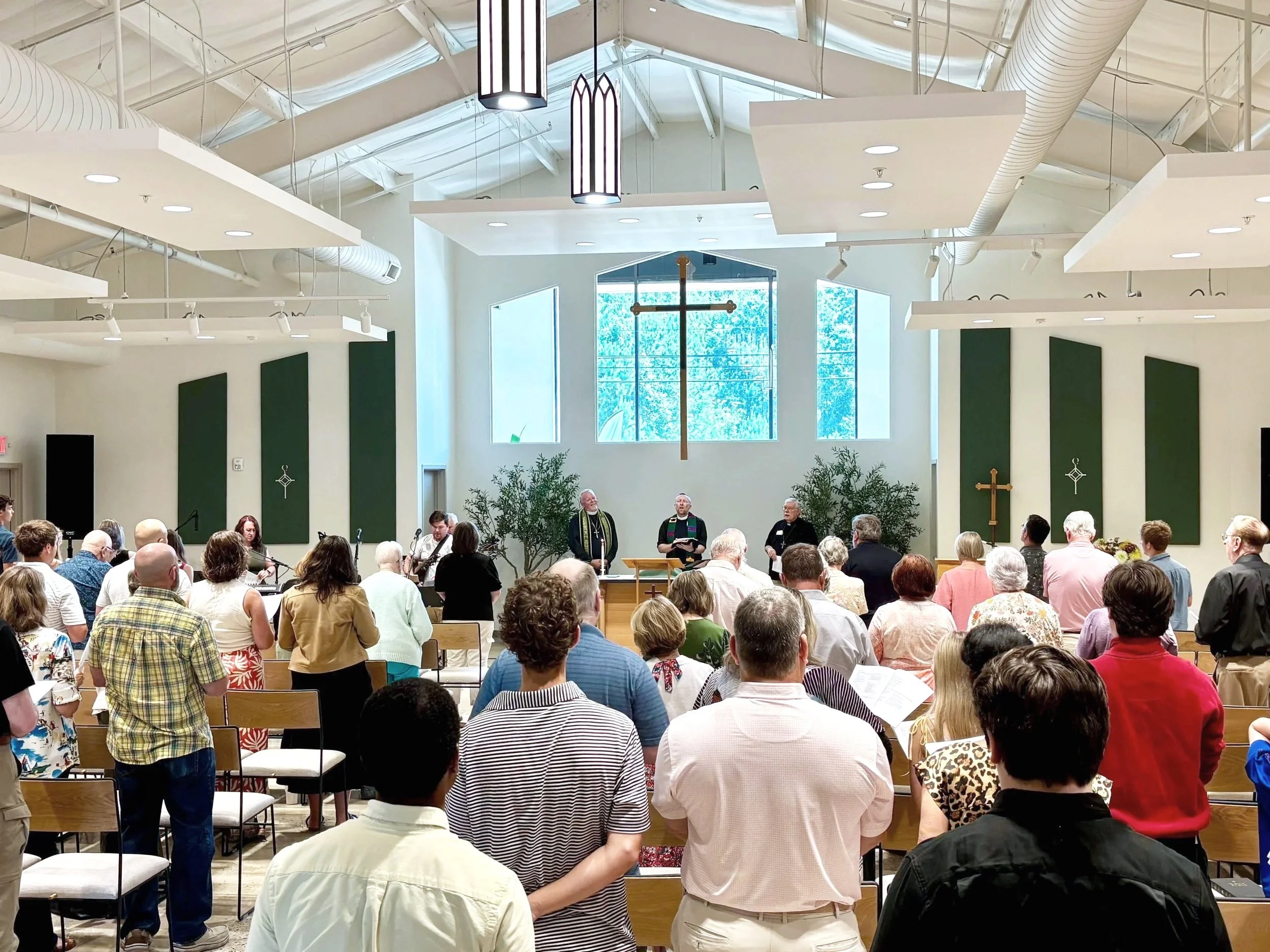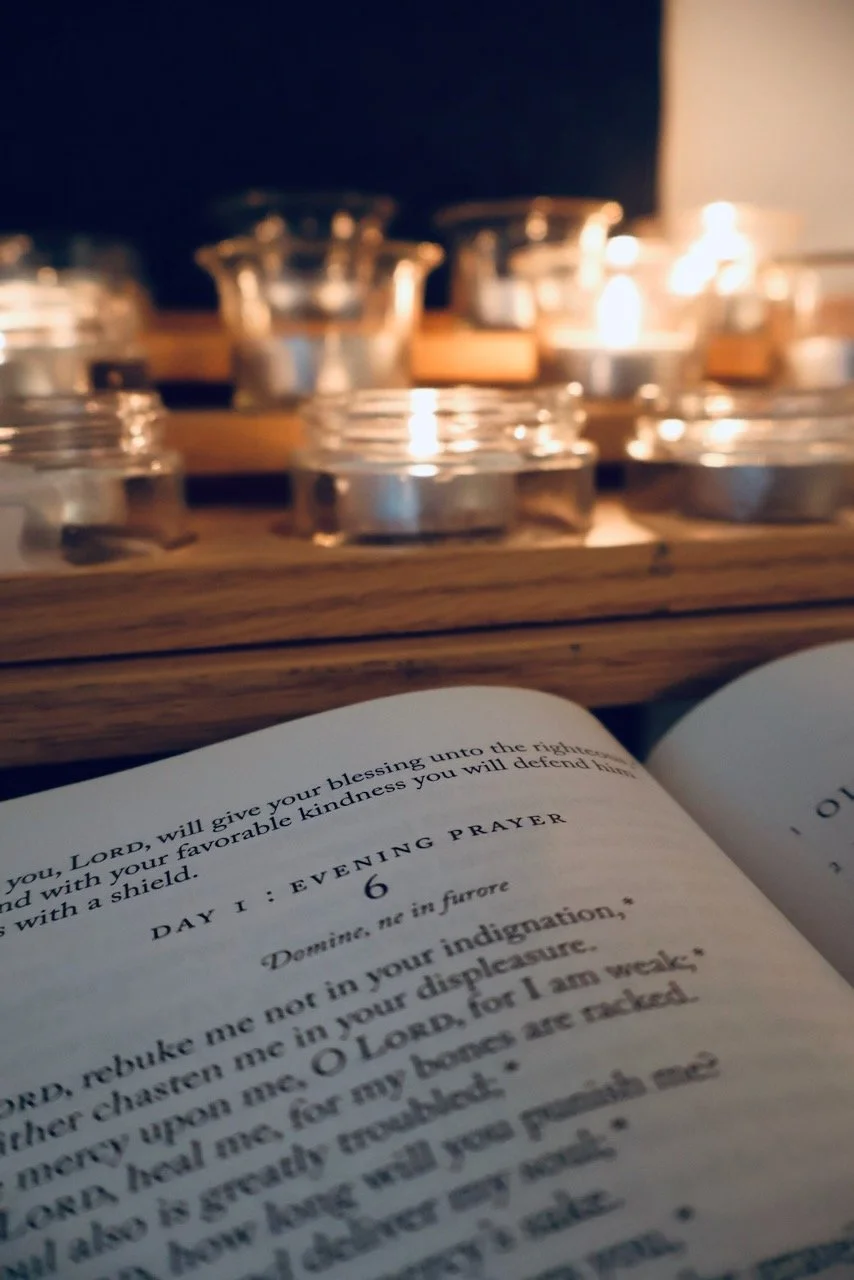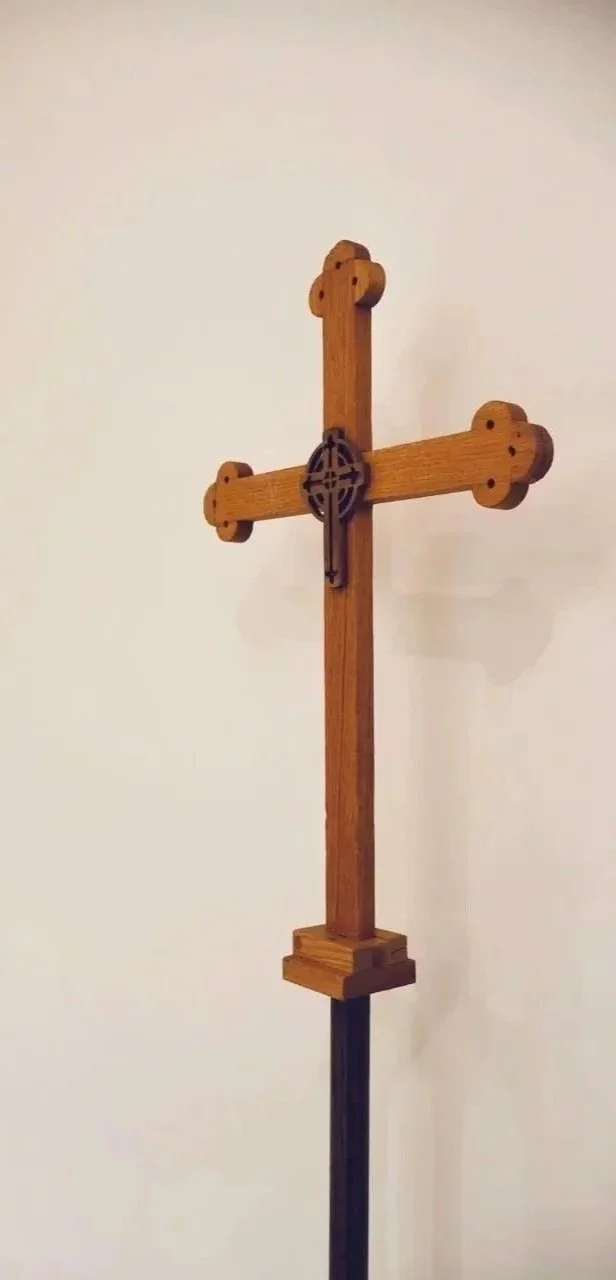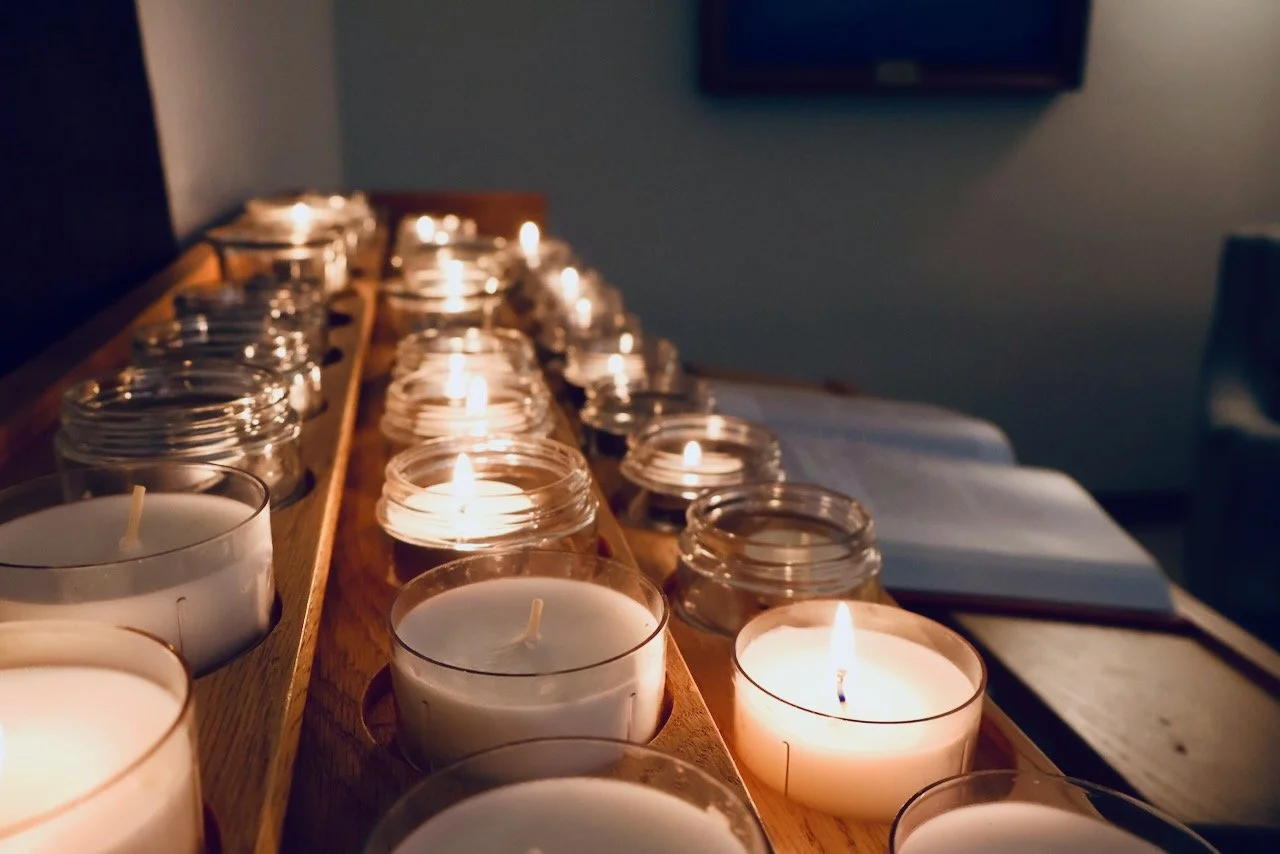Who We Are
(And who we are trying to become)
“I came that they might have life and have it abundantly.”
— Jesus
What does the abundant life that Jesus offers look like?
We are seeking and sharing life in Christ through ancient-future faith…
Because we believe Him, we are learning to orient our entire lives around Jesus’ life & teachings and to help others do the same. Fortunately, we have the benefit of generations of Christians who have gone before us, people who have trusted Jesus faithfully and who have left a trail for us to follow.
At Good Shepherd Anglican, we’re attempting to lean into their wisdom and experience while adapting and applying it to our present and ever-changing circumstances.
Identity & Vision
IDENTITY
Together as Good Shepherd Anglican Church…
Our name says it all: Good Shepherd. Using a metaphor that offends some and comforts many, Jesus claimed to be the good shepherd of the people of God. He said he was the one who lays down his life for his friends and that the reason he came was to give real and abundant life to humanity. In contrast to all others, Jesus insisted that he was the one and only Son of God, the savior of the world, the defender of humanity, and the sustainer of life itself. Our life together as a spiritual community is based on one simple truth: we believe him.
MISSION
…we are forming followers of Jesus through Word, Sacrament, and Community.
If our vision of seeking and sharing life in Christ through an ancient future faith is what we are living into, then our mission is how we get there, and that mission extends outside of the walls of our Sunday morning worship into our homes, offices, classrooms, and neighborhoods. We see this happening as God shapes us into a community rooted in ancient faith, led by the Good Shepherd, creating space for people to find hope, healing, and a deeper experience with resurrected Jesus Christ.”
Values
Spiritual Formation
As a church family, we are committed to prioritizing five Biblical practices that Christ has lovingly invited us into and uses to shape our habits & way of life:
-
We think of discipleship as… the life-long process of becoming like Christ.
We value it by… approaching everything we do as an opportunity to participate in the Spirit’s work of making us more like Jesus in our character, thoughts, words, and deeds.
-
Prayer is … the disciplined pursuit of connecting with God through unceasing conversation.
We value it by… inviting God into all aspects of our lives, speaking to Him in the way we would speak to our closest friend and then learning to hear His voice in return.
-
We think of community as… the powerful witness of loving one another as Jesus has loved us.
We value it by… spending time together on Sunday mornings and throughout the week and by emphasizing authenticity, hospitality, reconciliation, and mutual support in countless practical forms.
-
Mission is … the costly commitment of sharing the privileges of God’s kingdom with others.
We value it by… looking around at the world, imagining what it would look like if the kingdom grew in our midst. Learn about the several missions we support in our community and abroad.
-
Worship is … the corporate experience of encountering the Lord in Spirit and truth through word and sacrament.
We value it by… prioritizing Sunday morning “church” and ordering the rhythms and routines of our lives around all that takes place there.
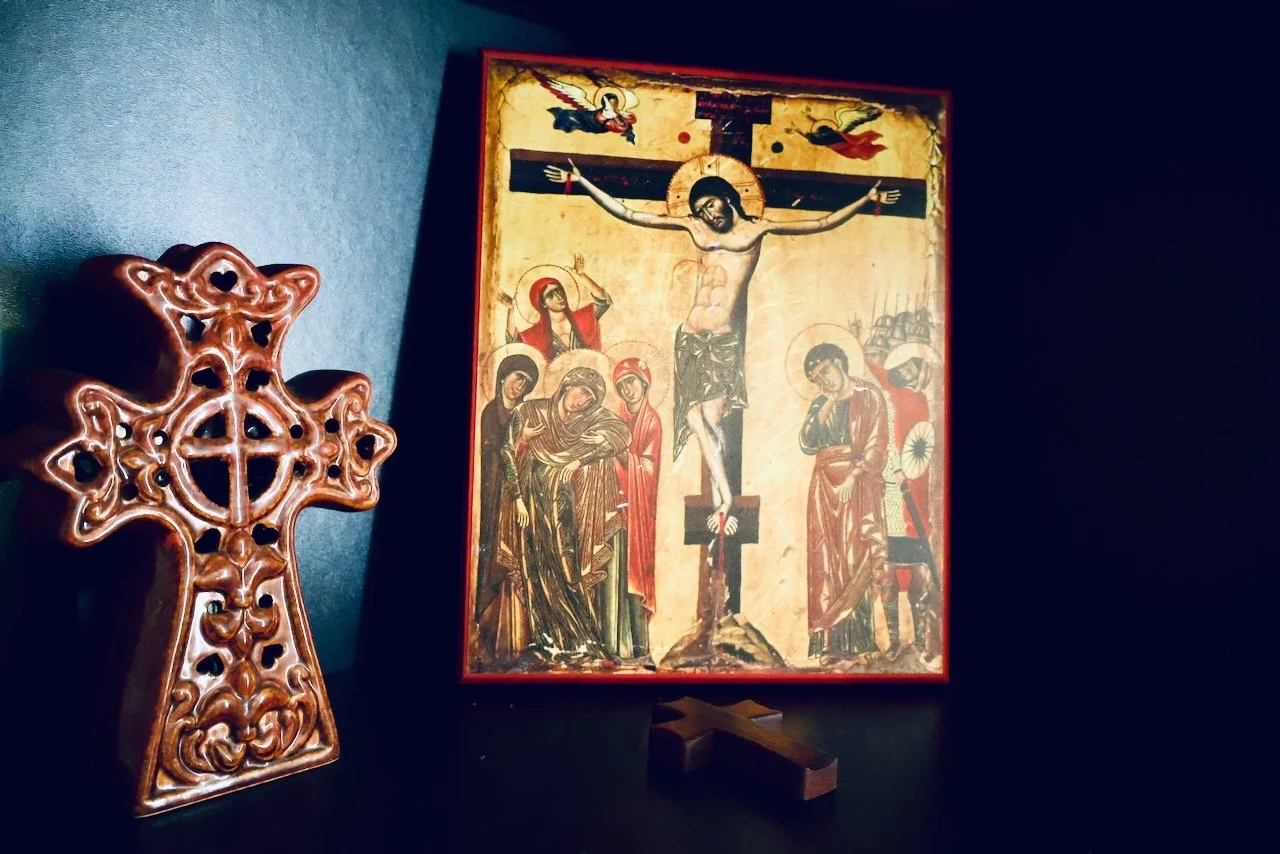
What is Anglicanism?
“Being immersed in the liturgical seasons that follow Jesus’ life year after year have helped me deeply connect with and grow in my relationship with Jesus.”
- Carolyn H.
Anglicanism is a relationship—one that reaches around the globe to every continent and has roots deep into the fertile soil of history.
Orthodox
By orthodox, we mean that Good Shepherd Anglican is committed to teaching the historic Christian faith expressed in the Nicene Creed.
Living
As the body of Christ, we believe the Church is a living community formed and sustained by the Spirit of God, who is at work in the world in dynamic and powerful ways.
Historic
Our worship follows the traditional Anglican liturgy (including weekly communion) as expressed in the Book of Common Prayer. Our church is overseen by the Anglican Church of North America (ACNA).
“I appreciate that the Anglican Church is rooted in Scripture and liturgical worship. We have a worldwide communion with other Christ followers.”
- Jason T.
Guiding Texts & Rhythms
We look to several historic texts
to inform our theology:
-
We believe that the Bible is the inspired word of God and that the 66 books that make up the Old and New Testaments are his self-revelation to us, his creation.
-
We hold to and affirm the three historic creeds of the Christian Church:
The Apostles’ Creed
The Nicene Creed
The Athanasian Creed.
Here is the text of the Nicene Creed…
We believe in one Lord, Jesus Christ, the only–begotten Son of God, eternally begotten of the Father, God from God, Light from Light, true God from true God, begotten, not made, of one Being with the Father; through him all things were made. For us and for our salvation he came down from heaven, was incarnate from the Holy Spirit and the Virgin Mary, and was made man. For our sake he was crucified under Pontius Pilate; he suffered death and was buried. On the third day he rose again in accordance with the Scriptures; he ascended into heaven and is seated at the right hand of the Father.
He will come again in glory to judge the living and the dead, and his kingdom will have no end.
We believe in the Holy Spirit, the Lord, the giver of life, who proceeds from the Father [and the Son], † who with the Father and the Son is worshiped and glorified, who has spoken through the prophets. We believe in one holy catholic and apostolic Church. We acknowledge one Baptism for the forgiveness of sins. We look for the resurrection of the dead, and the life of the world to come. Amen.
-
In the name of God the Father, God the Son and God the Holy Spirit:
We, the participants in the Global Anglican Future Conference, have met in the land of Jesus’ birth. We express our loyalty as disciples to the King of kings, the Lord Jesus. We joyfully embrace his command to proclaim the reality of his kingdom which he first announced in this land. The gospel of the kingdom is the good news of salvation, liberation and transformation for all. In light of the above, we agree to chart a way forward together that promotes and protects the biblical gospel and mission to the world, solemnly declaring the following tenets of orthodoxy which underpin our Anglican identity.
We rejoice in the gospel of God through which we have been saved by grace through faith in Jesus Christ by the power of the Holy Spirit. Because God first loved us, we love him and as believers bring forth fruits of love, ongoing repentance, lively hope and thanksgiving to God in all things.
We believe the Holy Scriptures of the Old and New Testaments to be the Word of God written and to contain all things necessary for salvation. The Bible is to be translated, read, preached, taught and obeyed in its plain and canonical sense, respectful of the church’s historic and consensual reading.
We uphold the four Ecumenical Councils and the three historic Creeds as expressing the rule of faith of the one holy catholic and apostolic Church.
We uphold the Thirty-nine Articles as containing the true doctrine of the Church agreeing with God’s Word and as authoritative for Anglicans today.
We gladly proclaim and submit to the unique and universal Lordship of Jesus Christ, the Son of God, humanity’s only Saviour from sin, judgement and hell, who lived the life we could not live and died the death that we deserve. By his atoning death and glorious resurrection, he secured the redemption of all who come to him in repentance and faith.
We rejoice in our Anglican sacramental and liturgical heritage as an expression of the gospel, and we uphold the 1662 Book of Common Prayer as a true and authoritative standard of worship and prayer, to be translated and locally adapted for each culture.
We recognise that God has called and gifted bishops, priests and deacons in historic succession to equip all the people of God for their ministry in the world. We uphold the classic Anglican Ordinal as an authoritative standard of clerical orders.
We acknowledge God’s creation of humankind as male and female and the unchangeable standard of Christian marriage between one man and one woman as the proper place for sexual intimacy and the basis of the family. We repent of our failures to maintain this standard and call for a renewed commitment to lifelong fidelity in marriage and abstinence for those who are not married.
We gladly accept the Great Commission of the risen Lord to make disciples of all nations, to seek those who do not know Christ and to baptise, teach and bring new believers to maturity.
We are mindful of our responsibility to be good stewards of God’s creation, to uphold and advocate justice in society, and to seek relief and empowerment of the poor and needy.
We are committed to the unity of all those who know and love Christ and to building authentic ecumenical relationships. We recognise the orders and jurisdiction of those Anglicans who uphold orthodox faith and practice, and we encourage them to join us in this declaration.
We celebrate the God-given diversity among us which enriches our global fellowship, and we acknowledge freedom in secondary matters. We pledge to work together to seek the mind of Christ on issues that divide us.
We reject the authority of those churches and leaders who have denied the orthodox faith in word or deed. We pray for them and call on them to repent and return to the Lord.
We rejoice at the prospect of Jesus’ coming again in glory, and while we await this final event of history, we praise him for the way he builds up his church through his Spirit by miraculously changing lives.
-
I. Of Faith in the Holy Trinity.
There is but one living and true God, everlasting, without body, parts, or passions; of infinite power, wisdom, and goodness; the Maker, and Preserver of all things both visible and invisible. And in unity of this Godhead there be three Persons, of one substance, power, and eternity; the Father, the Son, and the Holy Ghost.
II. Of the Word or Son of God, which was made very Man.
The Son, which is the Word of the Father, begotten from everlasting of the Father, the very and eternal God, and of one substance with the Father, took Man’s nature in the womb of the blessed Virgin, of her substance: so that two whole and perfect Natures, that is to say, the Godhead and Manhood, were joined together in one Person, never to be divided, whereof is one Christ, very God, and very Man; who truly suffered, was crucified, dead, and buried, to reconcile his Father to us, and to be a sacrifice, not only for original guilt, but also for actual sins of men
IV. Of the Resurrection of Christ.
Christ did truly rise again from death, and took again his body, with flesh, bones, and all things appertaining to the perfection of Man’s nature; wherewith he ascended into Heaven, and there sitteth, until he return to judge all Men at the last day.
V. Of the Holy Ghost.
The Holy Ghost, proceeding from the Father and the Son, is of one substance, majesty, and glory, with the Father and the Son, very and eternal God.
VI. Of the Sufficiency of the Holy Scriptures for Salvation.
Holy Scripture containeth all things necessary to salvation: so that whatsoever is not read therein, nor may be proved thereby, is not to be required of any man, that it should be believed as an article of the Faith, or be thought requisite or necessary to salvation… [Click here to keep reading]
How the “Thirty-Nine Articles on Religion” Uniquely Shapes Our Anglican Faith
God
There is but one living and true God, everlasting, without body, parts, or passions; of infinite power, wisdom, and goodness; the Maker, and Preserver of all things both visible and invisible. And in unity of this Godhead there be three Persons, of one substance, power, and eternity; the Father, the Son, and the Holy Ghost. [Article I, Thirty-Nine Articles]
Church
The visible Church of Christ is a congregation of faithful men, in which the pure Word of God is preached, and the Sacraments be duly ministered according to Christ’s ordinance, in all those things that of necessity are requisite to the same. [Article XIX, Thirty-Nine Articles]
Scripture
Holy Scripture containeth all things necessary to salvation: so that whatsoever is not read therein, nor may be proved thereby, is not to be required of any man, that it should be believed as an article of the Faith, or be thought requisite or necessary to salvation. In the name of the Holy Scripture we do understand those canonical Books of the Old and New Testament, of whose authority was never any doubt in the Church. [Article VI, Thirty-Nine Articles]
Seasons of the Church Year
The rhythms of the liturgical calendar guide our weekly worship. Rooted in deep history and aligned with the global church, we look to the seasons of the church to guide us through important seasons.
Festival Days
White is the color that represents Festival days, such as Easter and Christmas.
Advent
Advent (from the Latin word adventus, which means “arrival” or “coming”) is the first season of the liturgical year. It begins four Sundays before Christmas and ends on Christmas Eve. This season is often marked by the Advent Wreath, a garland of evergreens with four candles. Blue is the color associated with this season.
Lent
Lent is a the season of preparation for Easter. It begins on Ash Wednesday and lasts for forty days. Lent is a time of somber reflection, remembering the great sacrifice that was made on our behalf. The six Sundays that fall within Lent are not counted during the fast, as they are “feast days.” Purple signifies lent in our liturgy.
Pentecost
Pentecost is the fiftieth and last day of the Easter season. It celebrates the sending of the Holy Spirit to the Apostles, which traditionally marks the birth of the Church, see also Apostolic Age. Red is the color associated with Pentecost, alluding to the fire that was present on the original day of Pentecost.
Ordinary Time
“Ordinary Time” or Growth Seasons are the days that fall outside of festival days or designated seasons in our calendar. It comprises two periods: the first period begins on Epiphany Day and ends on the day before Ash Wednesday; the second period begins at the end of Easter season and continues until Advent. Green is associated with these days.

